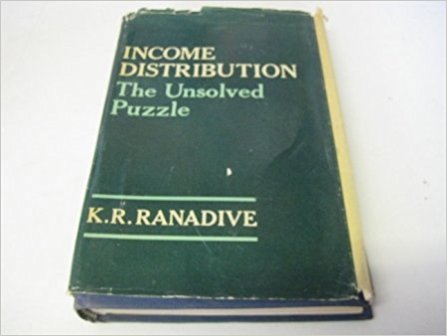Academic economics in the capitalist world is in a state of confusion. The recent mathematical reformulations of the theory have been unable to solve it. The theory of income distribution is not an exception to this. But there is one difference, unlike the theory of production, it has been the least emphasized discipline. KR. Ranadive’s book attempts to focus on this problem.
The book is basically a survey of various theories of income distribution. The author has no claims to originality. The approach of negation has been adopted, with the hope that ‘nihilism may itself serve as a liberating force’. The author has provided a framework in which to consider the distribution of income and bring in ethical values to the analysis. Her criterion for such an appraisal has a bearing on technical questions like appropriate concept of income, the universe of income, measurement of income disparity and related questions.
While three criteria— (i) efficiency, (ii) adequacy, and (Hi) equity—have been discussed, the author has reduced them ‘to a single criterion of justice. Efficiency being relative to distribution, and adequacy and equity being related with equity as a senior pattern, equity becomes the ultimate criterion. With justice as fairness, instead of justice being “a kind of efficiency”, efficiency itself becomes a kind of justice.’

